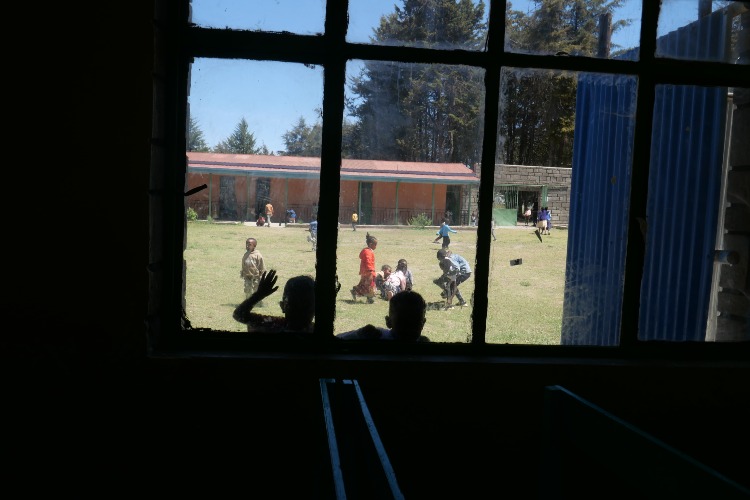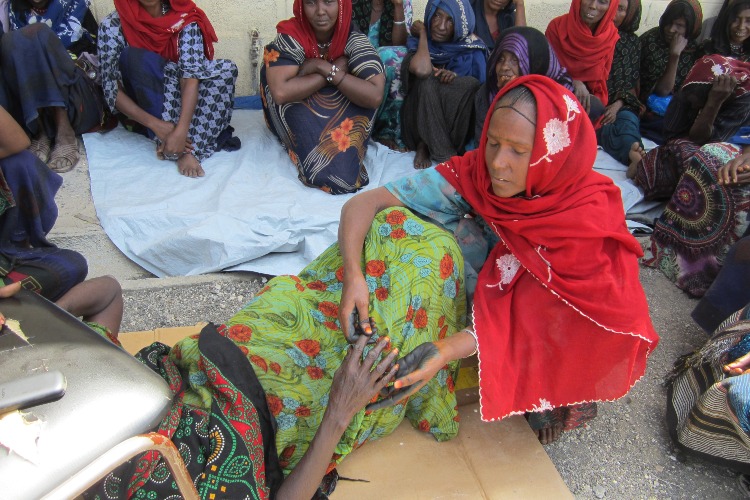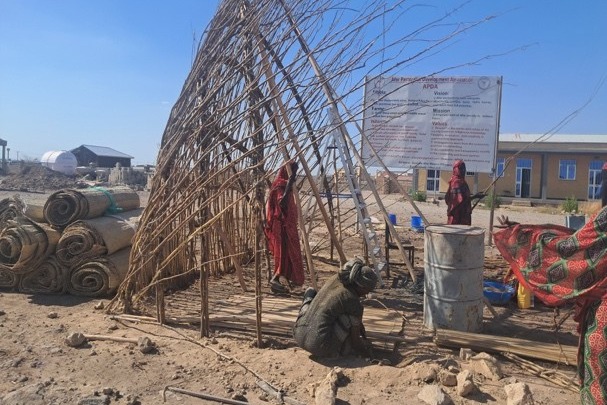Obstetric fistula in Ethiopia: In-depth
21 April 2023
An in-depth look at the causes, impact and prevalence of obstetric fistula in Ethiopia.
Obstetric fistula is a devastating childbirth injury that affects thousands of women in Ethiopia. It is a condition that occurs when there is prolonged or obstructed labour during childbirth, causing a hole to develop between the birth canal and the bladder and/or rectum. This results in continuous leakage of urine or faeces, which leads to social stigma, isolation, and profound psychological and physical distress. Unfortunately, many women in Ethiopia do not have access to adequate maternal healthcare services, and as a result, they are at a higher risk of developing obstetric fistula.

.
Jump ahead:
>>> Prevalence of fistula in Ethiopia
>>> Impact on a woman
>>> Causes behind obstetric fistula
>>> Treatment and support
.
Prevalence of fistula in Ethiopia
Despite fistula being eliminated in many “global north” or developed nations, to this day the rate of obstetric fistula in Ethiopia remains high.
To this day, 9,000 women in Ethiopia develop fistula each year and there are about 142,000 women currently living with untreated fistula.

.
Impact on a woman
Obstetric fistula has a devastating impact on a woman's life in Ethiopia, both physically and emotionally. Here are some of the ways in which obstetric fistula can affect a woman:
Incontinence >>>
Obstetric fistula results in the continuous leakage of urine and/or faeces, making it difficult for women to maintain good hygiene, often leading to infection and unpleasant odour.
Stillbirth >>>
In as many as 90% of cases, the prolonged labour that causes the fistula also results in stillbirth.
Social stigma and isolation >>>
There is great stigma against fistula in rural Ethiopia with many believing it to be a “curse” or a sign of disfavour with God. As a result, women with fistula are often shunned by their communities and isolated from social activities.
Deteriorating mental health >>>
The shame and isolation of fistula often leads to depression and feelings of hopelessness among women, made even worse by the loss of her baby.
Economic hardship >>>
In most cases, women with obstetric fistula cannot work outside the house –both because of their continual leaking and because of the stigma surrounding their condition – and may struggle to perform household tasks. This adds great economic hardship to themselves and their families.
Divorce >>>
Due to the lack of awareness around obstetric fistula, divorce and abandonment by spouses is common, particularly in rural areas.

.
Causes behind obstetric fistula
An obstetric fistula is specifically caused when a woman experiences a prolonged or obstructed labour and the pressure from the baby's head causes tissue damage, leading to the formation of a hole, or fistula.
The causes behind this happening in Ethiopia are largely related to inadequate access to maternal healthcare services, particularly during childbirth. Some of the main causes include:
Lack of access to skilled birth attendants >>>
Many women in Ethiopia give birth at home without access to a skilled birth attendant, increasing the risk of complications during childbirth, including obstetric fistula. In fact, only two-fifths of women receive adequate antenatal care and half of women still don't have a health professional on hand when they give birth.
Poverty >>>
Poverty and lack of access to basic healthcare services, including prenatal and postnatal care, can also contribute to the development of obstetric fistula.
Lack of education >>>
Women who have limited access to education may not be aware of the importance of maternal healthcare services or may not know how to access them.
Early marriage and childbirth >>>
Girls who are married at a young age and give birth before their bodies are fully developed are at a higher risk of experiencing complications during childbirth, including obstetric fistula.
Cultural practices >>>
Certain cultural practices, such as female genital mutilation and early marriage, can increase the risk of obstetric fistula.
Addressing these underlying causes of obstetric fistula in Ethiopia requires a multi-faceted approach, including improving access to maternal healthcare services, providing education on maternal health, addressing poverty, and addressing dangerous traditions like female genital mutilation and child marriage.

.
Treatment and support
Obstetric fistula is both preventable and curable. Yet, to eliminate fistula, there is a need not only to provide medical treatment but also to address the social and economic consequences of the condition, improve awareness for the condition and tackle the underlying causes behind it.
Ethiopiaid Australia works with three project partners in Ethiopia to facilitate this.
Hope of Light >>>
The main focus at Hope of Light is fistula surgery. They operate three fistula hospitals across Ethiopia that provide specialist surgery, including comprehensive post-operative care - all at no cost. Hope of Light also run training programs for medical professionals to increase the number of skilled professionals able to treat and provide care for obstetric fistula. Alongside this work, they also run outreach and awareness activities in rural areas, provide free medical transport to women in need and offer patients the opportunity to learn literacy and handcraft skills in order to better provide for themselves upon their return home.
Healing Hands of Joy >>>
At Healing Hands of Joy (HHOJ), the two main objectives are awareness and prevention. Across four high-risk regions of Ethiopia, HHOJ train former fistula patients as Safe Motherhood Ambassadors who go back out to their rural communities to 1) identify new fistula cases and help them access treatment and 2) teach about safe pregnancy and childbirth to help prevent fistula from happening in the first space. Alongside their teams of Safe Motherhood Ambassadors, HHOJ also host community workshops, religious leader training, film screenings and male sensitivity training to break down the stigma against fistula.
Simien Mountains Mobile Medical Service >>>
Operating exclusively in the Simien Mountains, one of the most remote, inhospitable and under-serviced areas of Ethiopia, Simien Mountains Mobile Medical Services (SMMMS) deliver free, essential medical care. They’re building new health infrastructure, supporting the services of existing providers and creating flexible, roaming options to bring healthcare to areas that would otherwise be inaccessible. A large part of this work is to make mothermood safer via increased access to maternal health services and, as part of this, SMMMS operate donkey ambulances to safely transport pregnant women and emergency cases to hospital.

.
Ethiopiaid Australia receives no government support, so this work is 100% powered through the kind donations of people across Australia. By making a donation today, you can help treat, reintegrate and prevent cases of fistula and help put an end to this debilitating condition for good.
Donate today to help end fistula in Ethiopia for good.
DONATE NOW
.




